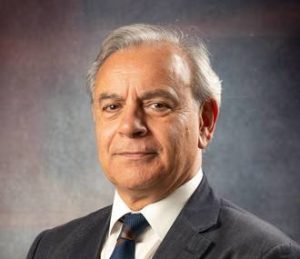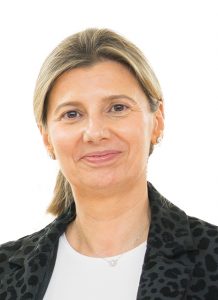What is Digital Transition
Technological cycles are an integral part of the history of humanity. Technological development, especially if it has a disruptive dimension on the economy and in society, creates a huge impact, although this usually takes time to occur: there is always lag time between the maturity of a technology and its availability on the market. The large industrial revolutions known up to now have always produced deep transformations over a long period of time. There is need for a space of adjustment. While the economy is being restructured, new institutions, infrastructure, businesses, markets and social consensus are created. This adaptation is a transition process that may require many decades and can lead to disputes and friction between “new” – the potential of progress – and existing structures and interests.
Artificial Intelligence and the Internet of Things are examples of these disruptive technologies. But what both have in common is the use of what has come to be called the new raw material of the twenty-first century: data. The digital transformation we are witnessing has given rise to a new economy and a new society: the Data Economy and Data Society.
Data has already become the main engine for the economic development and societal change in which we find ourselves immersed. New businesses, products and services that have changed the face of the economy have evolved from digitalisation and monetisation of data. But our lifestyle and governmental policies have also changed.
What is the EADT
The European Association for Digital Transition – EADT is a non-profit association that has been created to contribute to technological development and digital transformation, in particular in the data economy and data society.
The EADT has been created with the vocation to promote its own lines of action (and support those of third parties) that contribute to the European Union making a Digital Transition that is aligned with its founding values and will build technological leadership.
Who we are
We are European citizens who seek to influence the tectonic shift that the data economy is creating in our societies. We believe we are still in time to strengthen the necessary transformation processes, to empower individuals and citizens, and to support the economy and European companies in this phase of rapid transition.
We want to give voice to individuals, groups and organizations who want to see technological change and digital transformation implemented in the EU in a balanced and fair way, in accordance with the EU’s values. We seek to raise awareness, mobilise, open discussions and coordinate with others who share, partly or totally, our objectives.
Ricardo Rodríguez Contreras, president and Founder of EADT

Ricardo Rodríguez Contreras is an expert in employment, training, industrial relations and social dialogue. He has been research manager at the European Foundation for the Improvement of Living and Working Conditions (Eurofound) focussing his work on the impact of the digital transformation in the worlds of work, industrial relations, work organisation and production. For a decade, he has also researched the implications of the EU Economic Governance in the national social dialogue in all Member States. He has worked as an expert for the European Commission and the European Parliament, among other institutions, and for international bodies such as the IDB (Inter-American Development Bank) and the CABEI-BCIE (Central American Bank for Economic Integration). In addition to participating in business restructuring projects, he has been involved in transnational training activities for European Works Councils and managers. He has published numerous reports and studies on the implementation of European labour legislation, social dialogue and collective bargaining in EU member states.
Ana Caballero, vice president of the EADT

Ana Caballero is a lawyer specialised in technology and an expert in digital transition. She also works as a data protection officer in various scientific associations and has more than 20 years of professional experience forming part of diverse legal teams. Additionally, she has been a professor of Constitutional Law and Communication Law at the Universidad Antonio de Nebrija.
Caballero is currently the president of the Section on Infancy and Adolescence at the Madrid Bar Association and vice president of the European Association for Digital Transition where, moreover, she leads the line of work focused on minors and adolescents in the digital transition.

